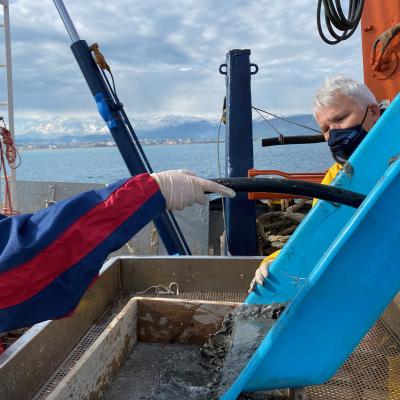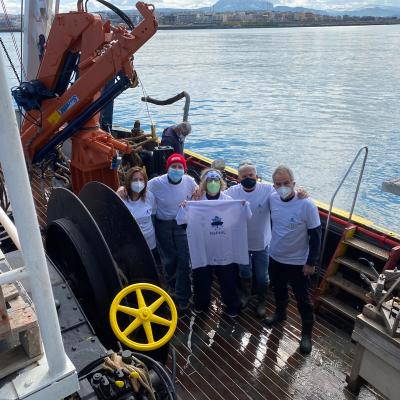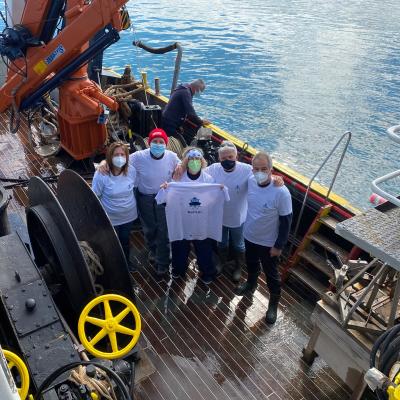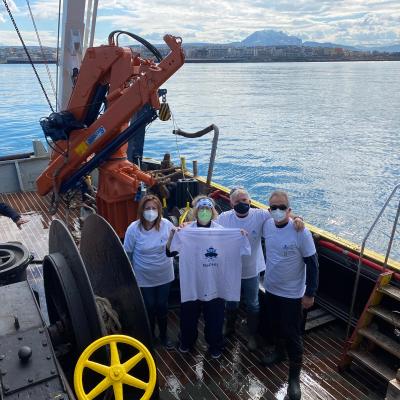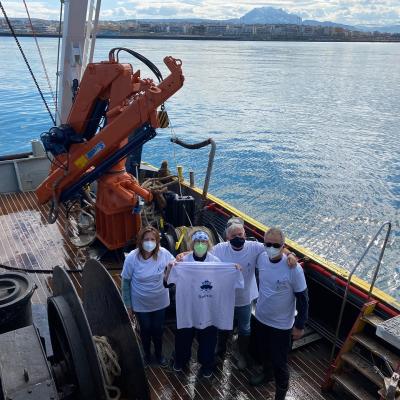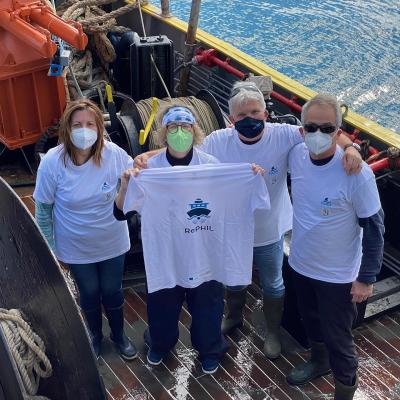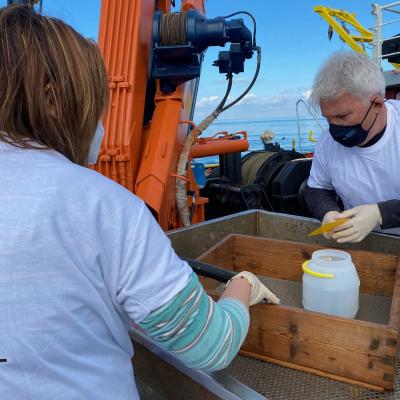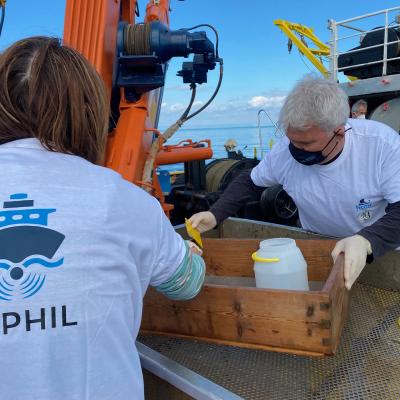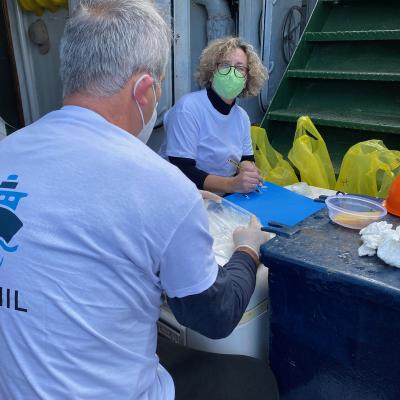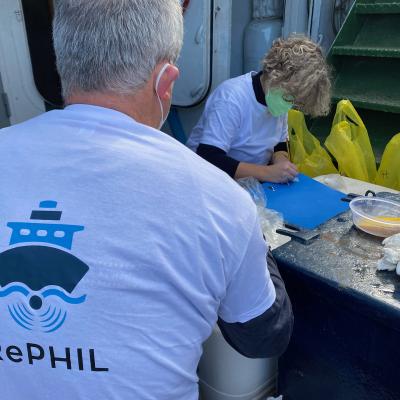Evaluation of the effectiveness of the reconstruction of the R/V PHILIA Ecological study of coastal marine ecosystems
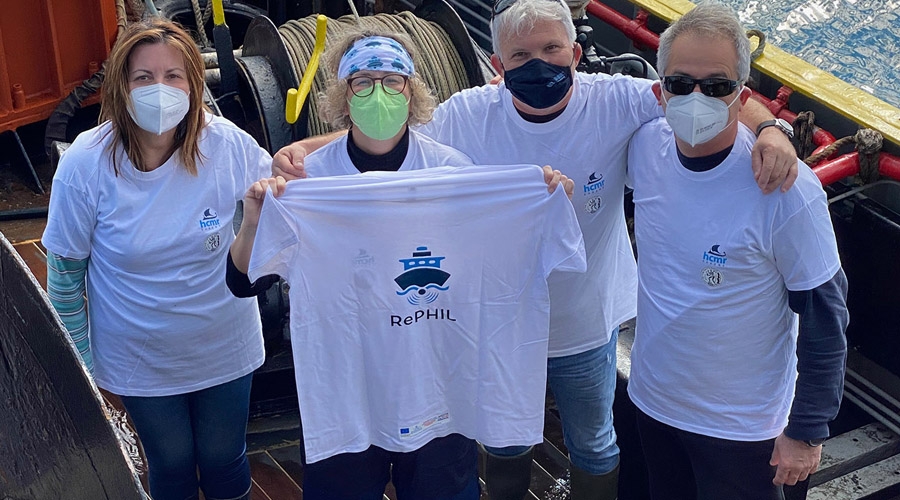
Test of the reconstructed vessel under real field working conditions with the aim of optimizing its sampling capacity and efficiency
When: January 2022
Where: Gulf of Heraklion, Gulf of Chania
What: Holistic approach for investigating current environmental conditions in Gulfs of Heraklion and Chania of Cretan Sea
Who: Laboratory of Marine Ecology & Ecosystem Management, Ιnstitute of Marine Biology, Biotechnology & Aquaculture
In the “Ecological study of coastal marine ecosystems” research action (funded by "RePhil"), the R/V PHILIA was utilized to record in situ hydrographic parametres and collect water and sediment samples by using different proper samplers as well as an otter trawl. The aim of the cruises was the study of different biotic and abiotic characteristics of the two coastal marine ecosystems of Heraklion and Chania Gulfs. More specifically, physico-chemical parameters both in the water column and the sediment, sedimentary characteristics, microbiological parameters in the water column as well as macrobentic, macrozooplanktonic and fish assemblages were studied over 10 sampling stations in each marine area (Heraklion and Chania Gulfs).
In the laboratory, data of hydrographic parameters were recorded (e.g., temperature, salinity, photosynthetically active radiation (PAR), dissolved oxygen, chlorophyll-a) and chemical parameters were analysed (e.g., phosphates, nitrates, nitrites, silicates, chloroplastic pigments, organic carbon) in the water column and in the sediment. Sediment analysis also took place and the major taxonomic groups of macrobenthic faunal and macro-zooplanktonic organisms as well as benthic and bethopelagic fish were identified and counted. Finally, microbiological parameters (e.g., coliforms) were recorded in the water of the study areas. This study that took place in the marine area of the waste water treatment plants of Herklion and Chania Gulfs revealed their relatively good ecological status by taking into account their different biotic and abiotic characteristics.
In the “Ecological study of coastal marine ecosystems” research action (funded by "RePhil"), the R/V PHILIA was utilized to record in situ hydrographic parametres and collect water and sediment samples by using different proper samplers as well as an otter trawl. The aim of the cruises was the study of different biotic and abiotic characteristics of the two coastal marine ecosystems of Heraklion and Chania Gulfs. More specifically, physico-chemical parameters both in the water column and the sediment, sedimentary characteristics, microbiological parameters in the water column as well as macrobentic, macrozooplanktonic and fish assemblages were studied over 10 sampling stations in each marine area (Heraklion and Chania Gulfs).
In the laboratory, data of hydrographic parameters were recorded (e.g., temperature, salinity, photosynthetically active radiation (PAR), dissolved oxygen, chlorophyll-a) and chemical parameters were analysed (e.g., phosphates, nitrates, nitrites, silicates, chloroplastic pigments, organic carbon) in the water column and in the sediment. Sediment analysis also took place and the major taxonomic groups of macrobenthic faunal and macro-zooplanktonic organisms as well as benthic and bethopelagic fish were identified and counted. Finally, microbiological parameters (e.g., coliforms) were recorded in the water of the study areas. This study that took place in the marine area of the waste water treatment plants of Herklion and Chania Gulfs revealed their relatively good ecological status by taking into account their different biotic and abiotic characteristics.



